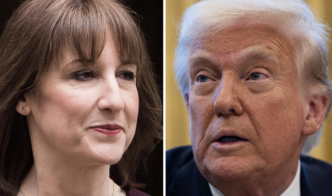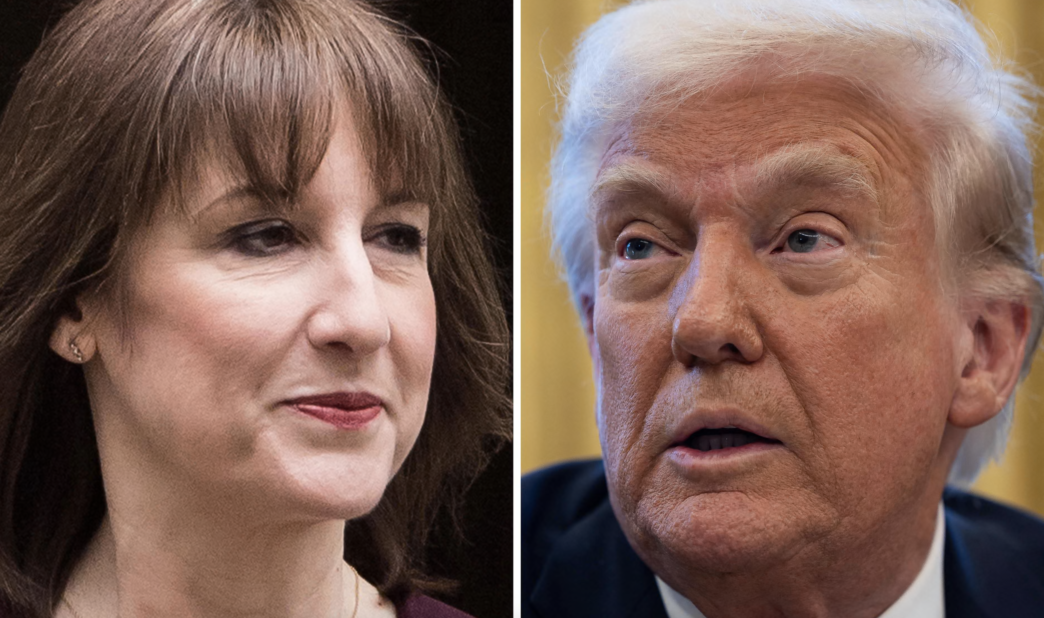As Chancellor Rachel Reeves delivered her spring statement, assuring the nation of “stability in public finances,” an underlying wave of economic anxiety filled the House of Commons. While Labour MPs nodded in agreement and Conservative benches looked on with skepticism, the real threat to Britain’s economy wasn’t addressed directly: the looming specter of a U.S.-led trade war.
Despite presenting cautious optimism—highlighting a minimum wage increase and declining interest rates—Reeves sidestepped a critical issue: global economic uncertainty driven by Donald Trump’s aggressive trade policies. The Office for Budget Responsibility (OBR) was more direct in its assessment. It warned that a potential 20% hike in U.S. tariffs could slash UK GDP by 1%, effectively negating the savings Reeves had just announced. This would force the government to seek additional revenue, likely through tax hikes.
A Trade War Britain Can’t Afford
Behind closed doors, UK and European officials acknowledge the precarious position. Despite efforts to fortify domestic economies, Trump’s unpredictable policy shifts could upend years of careful economic planning in an instant.
The recent leak of classified U.S. military plans for strikes in Yemen has only reinforced concerns over Trump’s erratic governance. Meanwhile, in Washington, UK Business Secretary Jonathan Reynolds and a delegation of officials are in frantic negotiations, seeking a trade deal to prevent punitive tariffs. But Britain is not alone—every U.S. trading partner is fighting for preferential treatment.
William Bain of the British Chambers of Commerce describes the ongoing discussions as “a negotiation like no other—both in its scale and its uncertainty.” Some fear the UK’s reluctance to challenge Trump’s rhetoric on trade and foreign policy could leave it in a weak bargaining position.
Will Trump Target the UK?
European trade expert Sam Lowe suggests Britain faces a pivotal moment. “If Trump imposes tariffs on the UK that are less severe than those on the EU, it would validate the government’s strategy of engagement over confrontation. But if the UK is hit with the same tariffs as more adversarial nations, its diplomatic approach will have failed.”
One potential bargaining chip is Britain’s digital services tax, aimed at recouping corporate tax from Big Tech firms that operate in low-tax jurisdictions. The U.S. is pressuring the UK to scrap this tax and reduce VAT on U.S. imports. But as economist John Springford warns, eliminating VAT for the U.S. alone would violate WTO rules and unfairly disadvantage UK producers.
Canada Stands Up to Trump—Should the UK?
While Britain treads carefully, Canada’s newly elected Prime Minister, Mark Carney, has taken a different approach, making opposition to Trump’s economic policies a cornerstone of his leadership. In a recent call, Trump unexpectedly softened his tone toward Canada, signaling that a firm stance may yield better results.
As Britain awaits Trump’s next move, Prime Minister Keir Starmer faces a strategic dilemma. Should the UK retaliate against tariffs as the EU is expected to do, or attempt further negotiations? Government insiders suggest that while Starmer is prepared to act decisively, he may also delay immediate retaliation in hopes of de-escalation.
The Uncertain Road Ahead
Even without new U.S. tariffs, the OBR forecasts weak trade performance for Britain, attributing much of the decline to Brexit-related disruptions. Meanwhile, rising employer national insurance rates and looming departmental budget cuts add to the economic strain.
Reeves insists that securing the nation’s financial future remains her priority. However, with external forces shaping Britain’s economic trajectory, the real question is whether she—or Donald Trump—is truly in control of the UK’s economic fate.
















